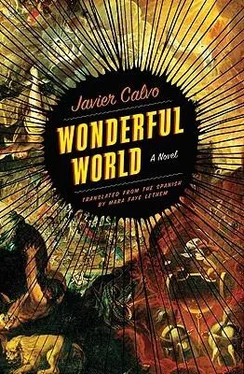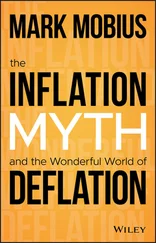PART II. “And the Sun Turned as Black as Sackcloth”
CHAPTER 16. A Step Too Far
Pavel looks at himself in the mirror — which is too low and too small — above the sink in his jail cell, which was designed for four prisoners and is currently occupied by eight. He's definitely satisfied with the texture of his dreadlocks, but not with the length. His dreadlocks are now as long as Bob Marley's were in 1973, when he recorded “I Shot the Sheriff” and appeared smoking a gigantic spliff on the cover of Catch a Fire. Which is to say, dreads that still defy gravity and extend lionlike in all directions, so that someone seeing him from afar could come away with the impression that his dreads were actually an Afro. The kind of dreads that Pavel wants are the ones that cascade down his back and can only be partially contained by a wool hat, like the dreads Bob Marley began sporting toward the end of the seventies, in the Exodus period. Pavel is infuriated by how slowly dreadlocks grow. He has a very precise idea of the personal image he wants to have, within the Rastafarian aesthetic, and he doesn't want his stupid scalp ruining that image.
“This mirror is for midgets,” he says in Russian, screwing up his face and looking at it in the mirror. “And for pinheads. And it's broken.”
Besides Pavel, the cell holds six Ecuadorians with bandannas on their heads and a guy from Minsk who's locked up for lighting a restaurant owner's bathroom on fire, with the restaurant owner inside. The way to fit eight prisoners into a cell originally designed for four reflects an ingenious institutional strategy that consists of placing foldout beds in every nonessential area of the cell. The guy from Minsk sticks his head out from his bunk, where he's reading a pornographic novel in Russian from the collection of Russian pornographic novels that circulate in the prison library, and takes a quick look at Pavel.
“I'm not surprised they left you here to rot,” the guy from Minsk says to Pavel. With his Belarusian accent that always makes Pavel think of farmers with sun-toasted faces. “You're the biggest pain in the ass I've ever seen in my life. This is fucking jail, not a five-star hotel. I wish I was like those guys and didn't understand Russian.” He points with his pornographic novel to the group of Ecuadorians with bandannas on their heads, who are seated at a folding table on the other side of the cell and betting rolled-up bills on cards. “It's obvious you've never been in a Russian jail. I'm going to ask them to put me in solitary.”
Pavel looks in the mirror at the rest of his appearance, his Wailers T-shirt and his black sweatpants, and deems them satisfactory. What would please Pavel most right now would be to give the guy from Minsk two smacks. It's difficult for Pavel to reconcile the teachings of Rastafarian philosophy with people like the guy from Minsk. He knows that a real Rastafari lives for the people and with the people in universal love. He knows that Rastafari have to work biblically, universally and spiritually for the redemption of humankind. And yet, every time he meets up with some representative of humankind, all the universal concepts fall apart. Someone knocks on the door of the cell from outside and the main elements inside rearrange themselves as fast as possible. The Ecuadorians with the bandannas hide their rolled-up bills and their cards in several types of pockets, drawers and hiding places around the cell. The guy from Minsk sticks his Russian pornographic novel under the mattress of his bunk and puts his hands behind his head in the universal body language representing the act of “resting” from all activity. Pavel turns and watches as the door opens.
There are two guards at the door. The one who's just opened the door looks first toward the group of Ecuadorians with bandannas. Now that there are no cards or rolled-up bills in sight, the Ecuadorians are just seated at the table with their hands on top of it. Or standing with their hands in their pockets. Not looking anywhere in particular. Showing profuse signs of inactivity with their body language. The way the Ecuadorians are spread out around the cell gives the impression that they are posing for one of those group photographs of Hollywood celebrities. Or one of those group photos of pop bands. The guard looks the other way, toward the Russian-speaking side of the cell.
“Congratulations, Bob Marley,” he says to Pavel. “Your cop boyfriend's here to see you.” He swings the bunch of keys he has in his hand with a distracted expression. “It's amazing how cops love you.”
“I don't think he's that handsome.” The other guard looks at Pavel with a calculating expression. “I don't know why the police love him so much.”
On hearing this, the Ecuadorians' body language transforms into gestures of penitentiary contempt. One of the Ecuadorians spits on the floor of the cell. Pavel lets himself be handcuffed, goes out into the corridor escorted by the guards and takes a last look at his bunk with an almost nostalgic expression.
“Don't come back,” says the guy from Minsk as he takes his Russian pornographic novel back out from under the mattress. “Please.”
The group composed of Pavel and the two guards travels through a muddled succession of hallways, stairways and rooms. Pavel can't make out any trace of cruelty or sadistic pleasure in the guards' faces, or any other traditionally penitentiary or police attitude that he's familiar with. In the visiting room, Commissioner Farina is at a table on which sit a thermos of coffee, a pile of plastic cups one inside the other, half a dozen croissants and various paper napkins. Beside the napkins are a group of the kind of folders that are used to transport police files. Commissioner Farina is flipping through a magazine about cars as Pavel sits at the other side of the table and waits for a guard to take off his handcuffs.
Pavel glances around. Several inmates at the other tables of the visitors' room look at him with expressions of penitentiary contempt. Pavel sighs. Commissioner Farina looks up from his automotive magazine as if he had just realized Pavel was in front of him and nods with admiration.
“Those hair things of yours have grown a lot,” he says, closing the magazine and leaving it on the table. Commissioner Farina has one of those chubby-cheeked faces and that very dense, black hair that are common in male adults from Barcelona. “The last time I saw you they were so short you looked like one of those puppets on TV.” He furrows his brow and turns to the lackey standing behind his chair. “What do they call those puppets?”
“Puppets?” The lackey frowns. “I think I know the ones you mean.”
“Doesn't matter.” The commissioner rolls up the magazine and starts hitting the edge of the table rhythmically with the rolled-up magazine, as if he were playing a simplified version of a drum kit. “The important thing here is that we're very happy to see you. We haven't seen you in months. Come by the station once in a while. You're neglecting us.” He makes some sort of sad face. “We're so happy to see you that we wanted to bring you a present. Some Bob Marley CDs or something like that.” He turns toward the police lackey again, still playing his simplified drum kit. “Did we bring him his Bob Marley CDs?”
The lackey seems to be staring at the legs of the wife of one of the prison inmates that are looking at Pavel with contempt.
“CDs?” says the lackey without taking his eyes off the woman. “I think we forgot them.”
“We forgot them.” Commissioner Farina shakes his head the way people shake their head when they want to emphasize that something's a real shame but, in the end, that's how life is. “But let's see. We must have something to give you. What do we have around here that we could give you?”
Читать дальше












